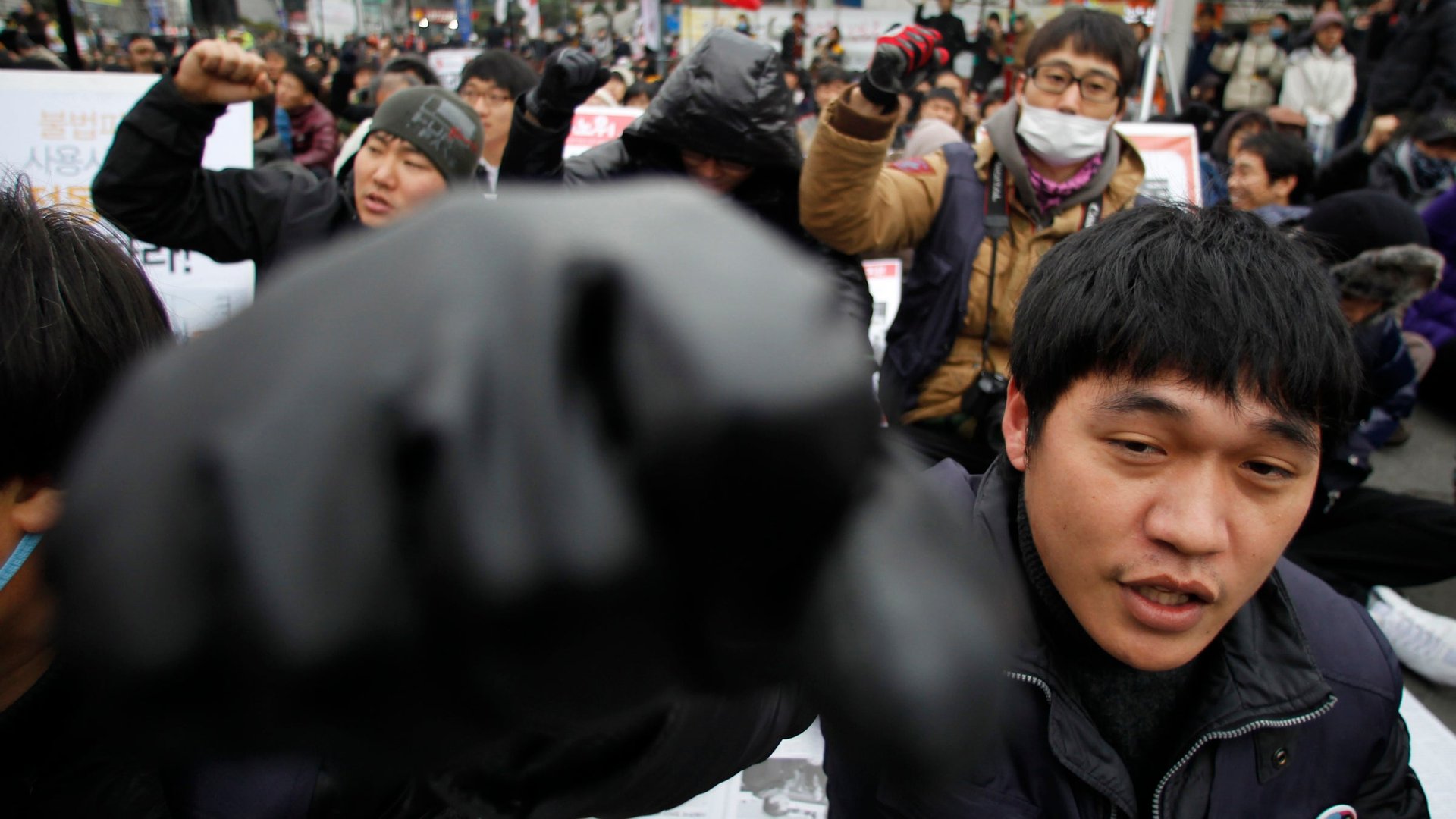Why automakers are thinking twice about setting up shop in South Korea
Gone are the days when setting up an automaking plant in South Korea was a no brainer.


Gone are the days when setting up an automaking plant in South Korea was a no brainer.
Foreign car makers that once relied on the Asian manufacturing power house for its engineering prowess are now drowning in a litany of complains from local unions. Workers in the four South Korean assembly plants of GM, which uses South Korea as a key export hub, have been staging partial walkouts since July 4 demanding more pay and better working conditions, which has already held up production of 1,000 vehicles. Under the latest round of negotiations that started in April, the unions are demanding an increase in basic pay, a bonus that equals three months’ salary and a one-time payment of 6 million Korean won ($5,300). GM manufactures some 40% of all its Chevrolets there, 80% of which are exported.
As a result, GM is pulling back from the country. The company has a 5-year, $7.4 billion investment plan for Korea, but has grown increasingly wary of starting major research and development projects there. In 2012, it decided to not manufacture the next generation of its Cruse small car in South Korea. In April, the company announced it would make its new Aveo subcompact in other locations including China and the US. CEO of GM Korea Sergio Rocha hinted at the possibility of an exit in an email to the company’s 17,000 employees in Korea, writing that further conflict and production losses would have an “irreversible effect on our future.”
Homegrown automaker Hyundai is also being weighed down by unions, which are demanding a bonus equivalent to eight months’ salary and an extension of retirement age to 61. The company has made 13 rounds of negotiations with unions since May, without any progress. In 2012, strikes cost the company as much as 1.7 trillion won in lost production.
Granted, the country has a long history of labor trouble. Unions have repeatedly gone on strike demanding better deals or blocking corporate pacts that they perceived as threatening to their jobs or wages. The organizations have enjoyed the persistent support and admiration of the public, which stems from their role in protesting Japanese colonial rule and South Korean dictatorships during the Cold War. South Korean courts have also handed out verdicts that are sympathetic to unions. But the opposition has intensified now that Hyundai and GM are moving more production abroad and paring back their workforce in the country.
Hyundai will suffer more than its foreign competitors. It has already reduced its production in-country from 93% in the year 2000 to 50%. But the Seoul-based carmaker can’t very easily ditch its homebase.